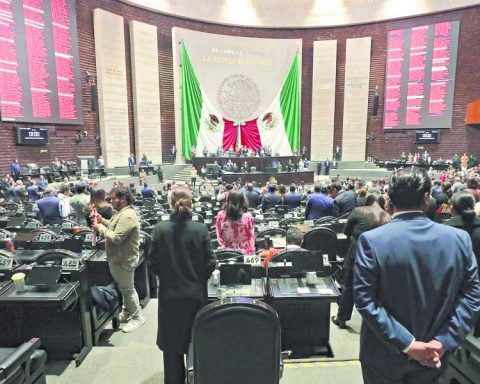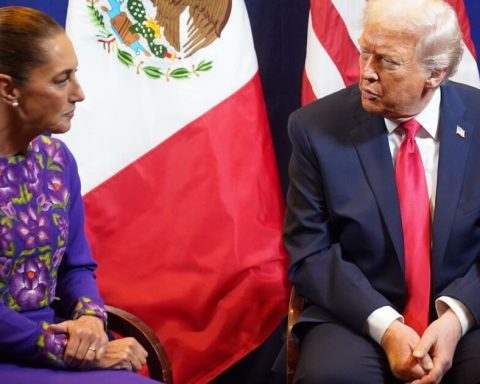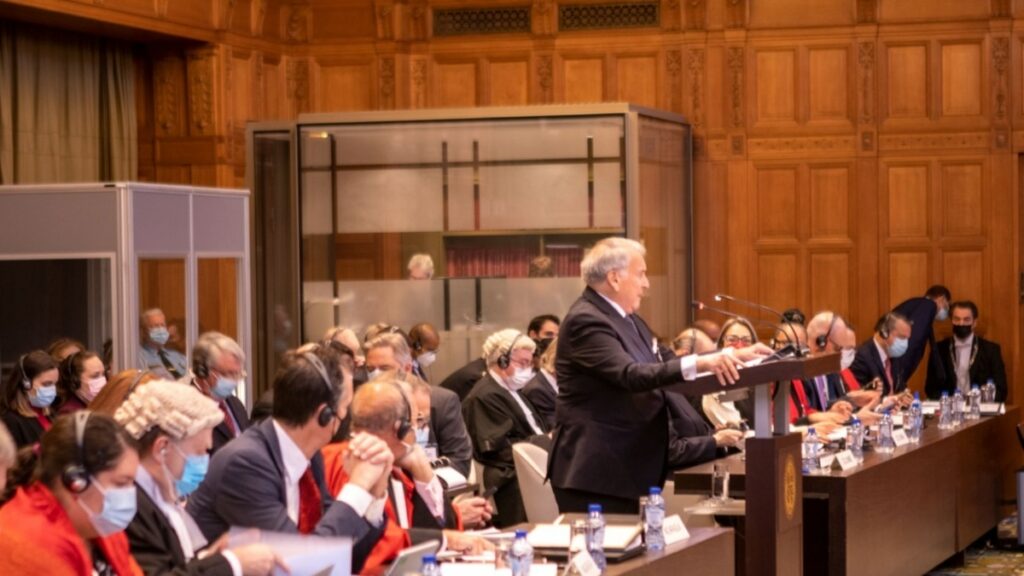The rise of nearshoring The need to modify the fiscal pact should be put on the table, and that is that if changes are achieved, the subnationals could have higher local income by attracting investments and thus stop depending on federal allocations, considered the director of the Konrad Foundation Adenauer (KAS) in Mexico, Hans Blomeier, in the framework of the presentation of the study Responsible Federalism.
In an interview with El Economista, the specialist explained that due to the study, which was also developed by the Economic Research and Teaching Center (CIDE)have identified that the dependence of the country’s states and municipalities towards the Federation’s allocations has not decreased, despite the passing of the years and the changes of federal administration.
For example, the study points out that in Mexico in 2001 federal contributions represented 52% of state revenues, federal contributions 38%, while taxes local only 2.2%; for 2019, the public income of the federal entities was made up mainly of federal contributions with 46%, federal participations with 37%, financing with 5%, taxes close to 5%; that is, the composition of income has barely changed in two decades.
“The tax collection (including the payment of rights and uses) represents a very small percentage of the total income of the federal entities, less than 5%. This implies that, despite the fact that, in theory, fiscal decentralization is a fact; in practice, subnational governments do not enjoy fiscal autonomy,” the study reiterated.
This inability to generate more income, Hans Blomeier explained, is due to the fact that the powers of the states to generate their own income are very limited, due to the “tax system prevailing in Mexico.”
“Given the limited possibility of the states to generate income, comes the excessively high dependency within a system called Federal (…) There is not enough capacity to generate resources, the distribution of resources is not generating development,” he considered.
Stressing that in recent years the need to modify the fiscal pact has been raised, and that even the members of the Federalist Alliance were right at the time, the director of KAS explained that there is a new positive economic factor that is generating the urgency of a modification, it is the nearshoring and where Mexico is capitalizing 80% of this sector worldwide.
“Mexico is certainly in a privileged situation to benefit from this global realignment, because these phenomena of inflation, stagnation have other components, it is the China issue, it is the issue of the energy crisis unleashed or evidenced by the imposition of Russia in Ukraine. What is observed globally is that there is a tendency and an urgency to guarantee these production lines global. Mexico is having access to a market of more than 450 million inhabitants with high purchasing power, it is in a luxury condition and situation to attract these investments”, he said.
Given this scenario, he said that different modifications to the fiscal pact need to be made, for example, giving greater collection capacities, applying a precise reference framework for fiscal responsibility, granting and expanding state fiscal capacities focused on the part of Foreign Direct Investment (FDI). ).
Regarding the latter, he stressed that the fiscal part focused on foreign investments needs to be addressed from the state level, especially in a context where they are growing due to nearshoring.
When will be the ideal moment to propose these modifications, the director pointed out that this must be done as soon as possible, this due to the amount of FDI that is coming to the country and that will increase for the following years.
“This is an urgent task. There can be initiatives from the federal Executive, it can be done and a broad call to the 32 states, through the Conago or other instruments to call the actors of the regions, would be important ”, he reiterated.
In addition, if a change is achieved, the economic and financial dynamics in an immediate period of five years, where the states will have more resources “and therefore, better public policies can be carried out.”
“This is an issue that will define where this country is going, it will define what Mexico will be. It is about giving them more management powers, that they have a greater margin of maneuver ”, he added.
examples
According to the study, there are some states in the country that achieved that their finances have generated a much more successful cycle with the application of the public resources, however, this is due to the fact that they have taken advantage of the current fiscal framework and generated, within their powers, tools, such as Public Debt Laws, Treasury Responsibility, as well as Budget and Public Expenditure regulations.
Among them is the Bajío region, with Aguascalientes and Guanajuato, as well as the north of the country with Baja California, Baja California Sur, Chihuahua, Coahuila, Durango, as well as the State of Mexico and Jalisco.
















